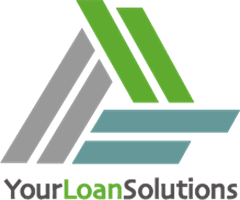Business Finance
for your entrepreneurship and helping to grow your business
Your Loan Solutions provides a comprehensive range of Business Finance products; whether you’re gearing up to start business, need finance to help you achieve your growth plans or need some short-term support to help you with cash flows.
Business credit cards: they provide a simple method to manage small purchases and day-to-day expenses for your business. If you’re able to settle your balance within the card’s interest free period you’ll be using a line of credit without paying any interest. Some business credit cards may also be inked to rewards program – so based on the volume of your transactions they may provide significant discounts off other business purchases.
Overdraft facility: a bank account feature allowing you to draw funds from the account even when it has a zero balance. Overdraft facilities typically have will have a pre-determined limit which can range from $2,000 – $50,000 with larger limits sometimes secured by assets. Interest is charged on borrowing that exceeds the overdraft limit – and it can be paid back or drawn down at any time.
Secured business loans: these loans are provided for a fixed time period and are ‘secured’ by a physical asset that is owned by the business and has an assessable value. Common forms of collateral used to secure these loans are commercial property, vehicles, machinery or other equipment. Pledging an asset as collateral reduces the lender’s risk (as they can take possession of the asset if you default on the loan) so they offer lower rates and longer terms.
Merchant cash advance: provides an option to access quick finance, without a requirement to provide detailed financial documentation. It can also be an option if you have difficulty providing a strong credit history or score. It’s a loan facility where the amount that is loaned (or ‘advanced’) is determined by your business cash flow, sales and turnover. Merchant cash advances are often paid off on a daily basis as a share of your sales – rather than a typical fixed monthly loan repayment.
Equipment hire purchase: these contracts enable you to purchase a piece of equipment over time from a lender. You can use it during the initial ‘hire’ period (although you don’t “own” it yet), then, when the last payment is made, ownership of the equipment is transferred to you. Hire-purchase agreements are flexible and can include initial deposits upfront (to reduce future repayments), ‘balloons’ at the end (lowering repayments but with a larger final lump sum payment), and options to return the asset during the ‘hire’ period if it’s no longer required.
Line of credit: is a standalone loan facility. It has a pre-determined limit, that can be drawn down or paid back at any time. Like a credit card or an overdraft, interest is only charged on the amount, and for the period that line of credit is being used.
Debtor finance: this solution allows a business to use its accounts receivable ledger as collateral to secure funding. Debtor financing can suit businesses issuing high volumes of invoices, as a way to manage working capital and short-term cash flow challenges. As a simple example, a debtor finance service may pay you 75% of your customer’s invoice value now, and pay the balance after the customer has settled the invoice (minus the lender’s fee for providing the money to you up front).
Equipment lease agreement: a lease is similar to a hire-purchase agreement, meaning you don’t have legal ownership of the piece of equipment. You have use of the item though ‘leasing’ it from the lender by paying a regular ‘rental’ fee. At the end of the lease period some agreements may give you the option of purchasing the equipment at its depreciated value, extending the lease period, or returning the equipment. It’s important to understand whether you or the leasing company are responsible for maintenance, registration and insurance costs.
Unsecured business loans: aren’t backed by property, equipment or other forms of collateral. Lenders often use business cash flows and the applicant’s credit status and history to determine loan approvals. Loans tend to be short-term, typically from between 3 months to 3 years.
Equipment loan/chattel mortgage: with this loan the lender provides finance for you to purchase an asset and uses the asset as security if you fail to repay the loan. In this agreement you have ownership of the equipment from the point of purchase and repay the loan to the lender in line with the repayment terms.

